Books
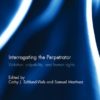
Interrogating the Perpetrator: Violation, Culpability, and Human Rights
Edited by Cathy J Schlund-Vials and Samuel Martínez. Set adjacent to “victims” and “bystanders,” “perpetrators” are by no means marginalized figures in human rights scholarship. Nevertheless, the extent to which the perpetrator is not only socially imagined but also sociologically constructed remains a central concern in studies of state-authorized mass violence. This interdisciplinary collection of essays builds…
Read more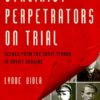
Stalinist Perpetrators on Trial: Scenes from the Great Terror in Soviet Ukraine
By Lynne Viola. Between the summer of 1937 and November 1938, the Stalinist regime arrested over 1.5 million people for “counterrevolutionary” and “anti-Soviet” activity and either summarily executed or exiled them to the Gulag. While we now know a great deal about the experience of victims of the Great Terror, we know almost nothing about…
Read more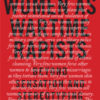
Women as Wartime Rapists: Beyond Sensation and Stereotyping
By Laura Sjoberg. Very few women are wartime rapists. Very few women issue commands to commit sexual violence. Very few women play a role in making war plans that feature the intentional sexual violation of other women. This book is about those very few women. Women as Wartime Rapists reveals the stories of female perpetrators of sexual…
Read more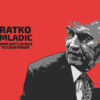
Ratko Mladic. From Battlefield to Courtroom
Ahead of former Bosnian Serb military commander Ratko Mladic’s war crimes verdict next week, BIRN has compiled all its reports on the landmark case into an open access e-book. The e-book contains all BIRN’s reports on the case from the point when Mladic was transferred to the International Criminal Tribunal for the Former Yugoslavia in…
Read more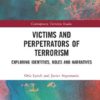
Victims and Perpetrators of Terrorism: Exploring Identities, Roles and Narratives
Edited by Orla Lynch and Javier Argomaniz. While the perpetrators of political violence have been the subject of significant academic research, victims of terrorism and political violence have rarely featured in this landscape. In an effort to capture the vast complexity of terrorism, and to widen the scope of the agenda that informs terrorism research, this…
Read more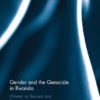
Gender and the Genocide in Rwanda: Women as Rescuers and Perpetrators
By Sara E. Brown. This book examines the mobilization, role, and trajectory of women rescuers and perpetrators during the 1994 genocide in Rwanda. While much has been written about the victimization of women during the 1994 genocide in Rwanda, very little has been said about women who rescued targeted victims or perpetrated crimes against humanity….
Read more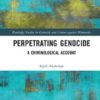
Perpetrating Genocide: A Criminological Account
By network member Kjell Anderson. Focusing on the relationship between the micro level of perpetrator motivation and the macro level normative discourse, this book offers an in-depth explanation for the perpetration of genocide. It is the first comparative criminological treatment of genocide drawn from original field research, based substantially on the author’s interviews with perpetrators…
Read more
The Accountability of Armed Groups Under Human Rights Law
By Katharine Fortin. Foreword by Andrew Clapham. Today the majority of the armed conflicts around the world are fought between States and armed groups, rather than between States. This changed conflict landscape creates an imperative to clarify the obligations of armed groups under international law. While it is generally accepted that armed groups are bound…
Read more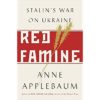
Red Famine
By Anne Applebaum. In 1929 Stalin launched his policy of agricultural collectivization—in effect a second Russian revolution—which forced millions of peasants off their land and onto collective farms. The result was a catastrophic famine, the most lethal in European history. At least five million people died between 1931 and 1933 in the USSR. But instead…
Read more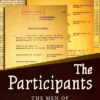
The Participants: The Men of the Wannsee Conference
Edited by Hans-Christian Jasch and Christoph Kreutzmüller. Translated from the German. On 20 January 1942, fifteen senior German government officials attended a short meeting in Berlin to discuss the deportation and murder of the Jews of Nazi-occupied Europe. Despite lasting only a few hours, the Wannsee Conference is today understood as a signal episode in…
Read more
